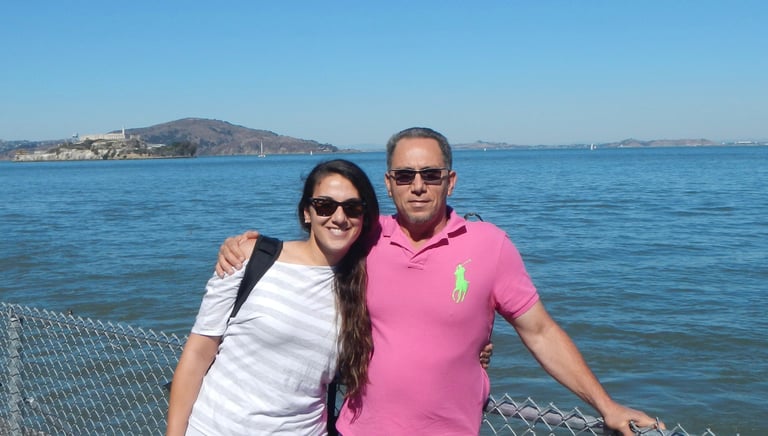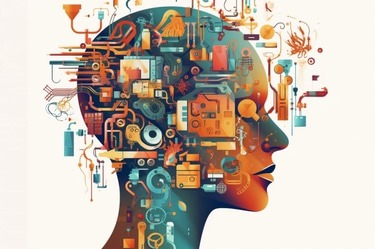Our Story - Survivor Turned Expert
The journey of my daughter, Sarah is a story of resilience, determination, and the power of shared experience. Sarah has been an exceptional student, bright and driven, even as a young girl. But at age 12, her life took an unexpected turn when she suffered a sudden hemorrhagic stroke caused by a genetic defect know as ArterioVenous Malformation (AVM). This hemorrhagic stroke left significant cognitive and physical challenges in its wake, challenges that would shape her journey but never define her. Over the next 17 years, she endured five Gamma-Knife brain surgeries. All of this resulted in a multi-stage acquired brain injury (ABI).
Watching Sarah confront her teen years with a brain injury was heart-wrenching. She would face an unfamiliar and daunting reality, full of various symptoms and challenges, yet she approached each day with courage and grit. My own experience 20 years earlier gave me a unique lens through which to guide her. An accident that left me with a leg amputation and a long-term traumatic brain injury (TBI), though challenging, it became an unexpected gift. One that allowed me to mentor Sarah through her ABI hurdles. Sarah later told me that this shared journey forged a bond of mentorship between us. But we both understand that mentoring is never one-sided; it is a mutual exchange of purpose and healing that strengthens both the mentor and the mentee.
Early in her recovery, doctors cautioned Sarah against pursuing her dream of higher education. The odds seemed stacked against her. Refusing to surrender her aspirations, we embarked on a 17-year academic journey marked by immense obstacles, including seizures and persistent cognitive fatigue that significantly reduced her daily productivity and extended her time in college. But Sarah’s resilience and determination finally paid off when she earned her Master’s degree and, ultimately, her PhD in Psychology, specializing in brain injury and neurorehabilitation. A powerful testament to her strength and perseverance.
After her stroke and brain injury, Sarah’s journey was marked by many symptoms and trials. One of the most devastating consequences has been her seizures, both focal and grand mal. These episodes often left her exhausted and stripped her of independence, preventing her from driving at times and leaving her to battle the profound loneliness of social isolation. Yet, even in isolation, Sarah turned adversity into insight, devoting herself to the cause. She became an expert in social isolation, by dedicating her thesis and dissertation to exploring its impacts and the nuances of social isolation and introverted behaviors.
Sarah completed her doctoral dissertation internship under incredibly demanding circumstances, crossing the finish line to graduate in 2023. But life tested her once again. An increase in seizure activity after graduation meant she couldn’t drive again or begin her postdoctoral training. For over 20 months, she faced isolation once more. Yet, instead of yielding to despair, Sarah channeled her energy into building a successful social and community network near home.
This period of reflection and resilience gave rise to a renewed purpose. One rooted in lived experience and driven by a shared mission. Drawing on Sarah’s academic expertise in neurorehabilitation and social isolation, and my decades of firsthand experience with brain injury and adaptive sports, we joined forces to build something meaningful for others walking a similar path. End Social Isolation.
Sarah’s journey is not just one of survival; it is a living testament to the human spirit’s ability to adapt, rise, and give back. Our work was born from challenge, shaped by research, and sustained by purpose. While our lives were redirected by stroke, brain injuries, and seizures, our mission now is clear: to ensure that no survivor or caregiver walks this road alone.
But the need is great, and our personal resources are limited. That’s why we’re inviting you to walk with us. Join our mission to end social isolation and help survivors and caregivers reclaim connection, clarity, and strength during healing and recovery.
Father & Daughter Team -
Adel & Sarah Shadi


